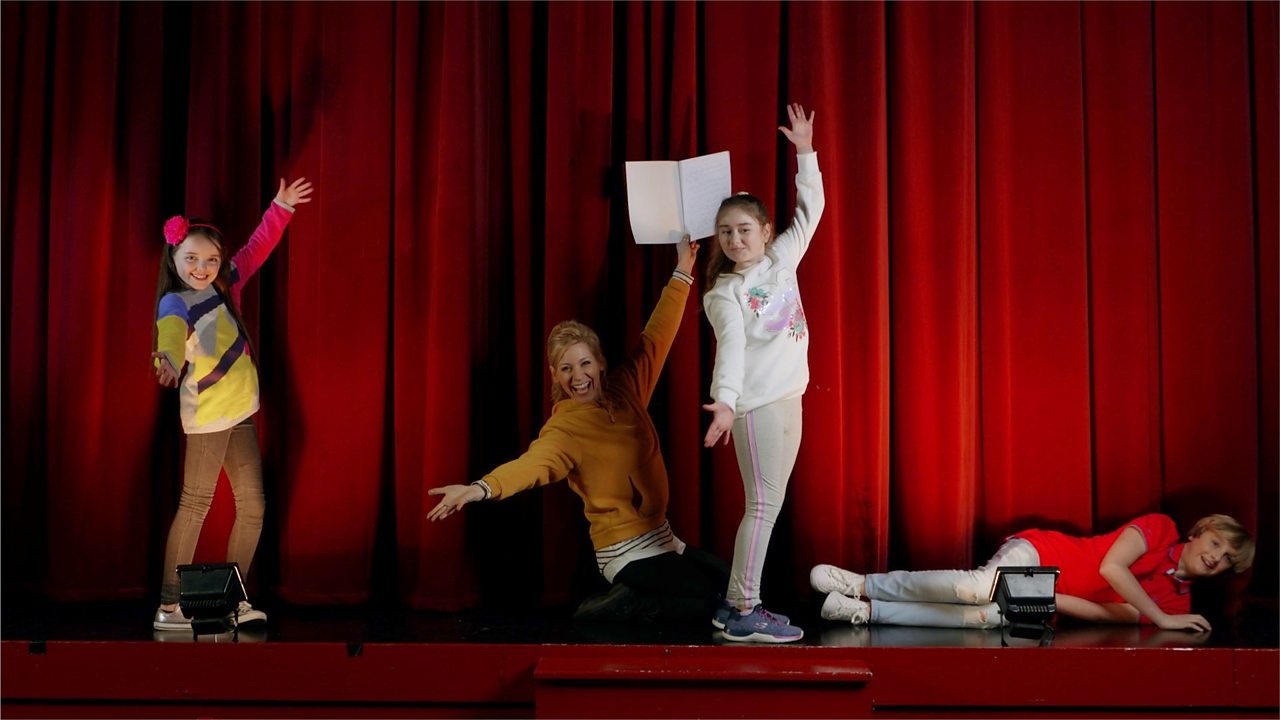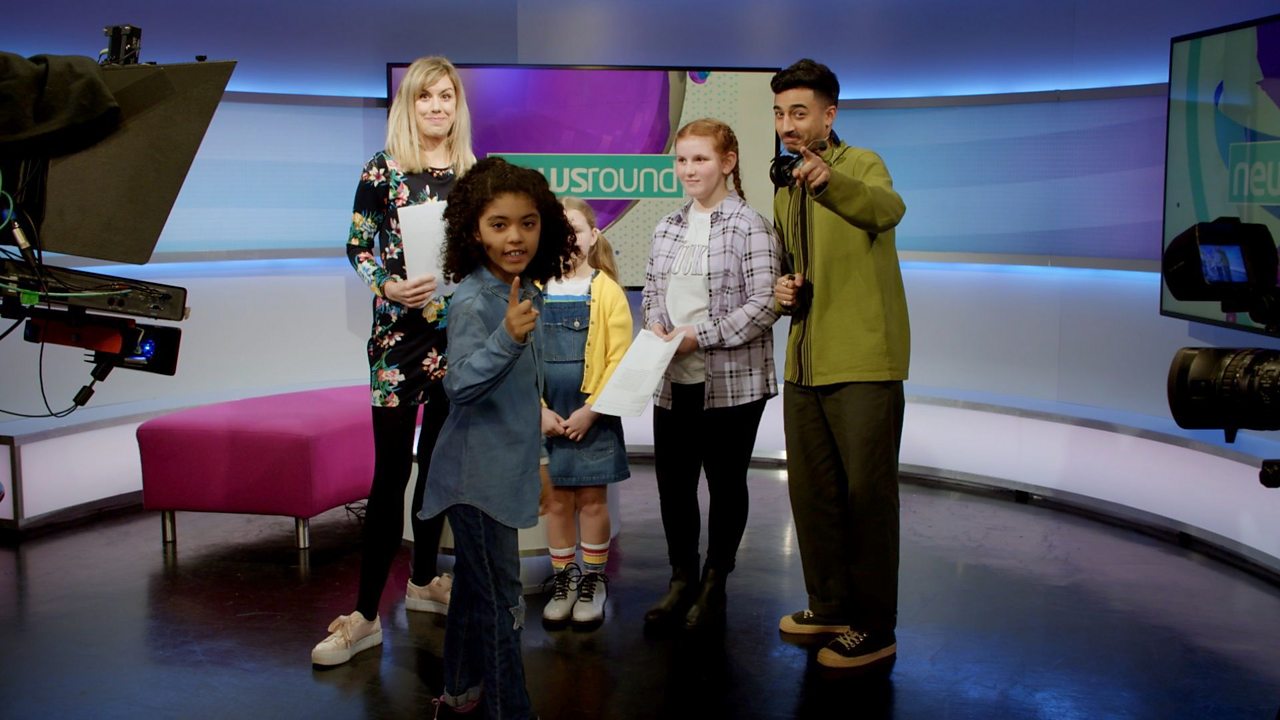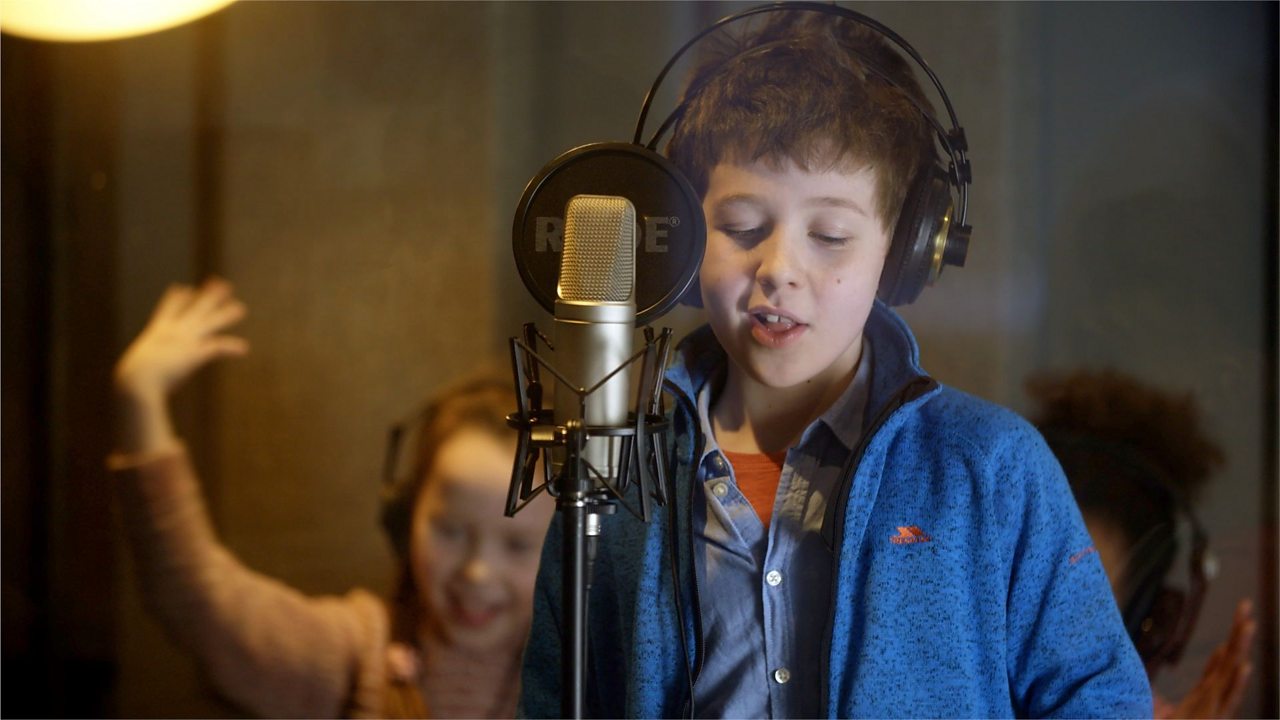KS2 English: Write a poem
Video summary
Presenter Naomi Wilkinson and a group of children gather in a greetings card shop and, using the cards for inspiration, are challenged to write a poem for someone they know.
Our ‘Master’ poet, Joseph Coelho, adds another level to the challenge by inviting children to incorporate language used for effect (i.e. rhyme, alliteration, onomatopoeia, assonance).
Working as a group, the children create their poems and perform excerpts at the end of the film.
This short film is from the BBC series, Get Creative.
Teacher Notes
Before watching
Bring into class a selection of greetings cards with poems in them (or have the children collect them in as part of homework).
Talk to your pipils about when they receive cards and ask if they’ve ever had one with a poem in it.
Read from the cards and try to guess what occasion/family member they are for. Have pupils read poems from a selection of cards.
They might want to share their favourites by reading aloud (reading poetry aloud is a great way to develop an ear for language).
After watching
Tell the children they are going to write a poem for a greetings card for someone they know, like in the video.
Give them a moment to decide who to write to.
Then give them five - ten minutes to note down some ideas for their card. (You may want to use some or all of the Thinking Questions below to help guide them).
Give the children some time to write their poems.
Depending on the ability and age of your pupils, go for 5-20 lines of poetry. For a further challenge – you can include the ‘Master Skill’.
Master Skill
- Using language for effect – possible language to include: rhyme, alliteration, assonance, onomatopoeia, puns.
Find examples of each to share with children and encourage them to pick one to try out in their own poems.
You may want to plan a focused skills lesson to incorporate this, or just challenge the children to the task.
Show them how to turn a normal line or two into a rhyming line… You’re always there for me when I come home. I love you mum, you’re beautiful, wise and funny.
Rhyme:
I love you mum,
You’re always there,
You’re wise and fun,
You always share!
Or how to add alliteration:
You’re a merry mummy,
mirthful and mischievous.
Pretty as a petal of a pink petunia.
Onomatopoeia:
You’re always there when I get home
You listen when I want a moan
And whisper reassuring words
That ring with love and real concern.
Pun:
Mum, you really are great at everything – you’re Opti-mum!
Mum, thank you for these fabulous jeans.
Thinking Questions
- What reaction do you want from the person who reads the card (make them smile, laugh, feel good about themselves)?
- What details can you include to make the card/poem really personal?
- What do I like most about this person?
- What is special about this person?
- What is funny about this person?
- What does this person make me feel?
- What do I want to make this person feel?
Supported Learning and SEN
Poetry can be a daunting prospect for children who struggle with the written word. There are many ways you could adapt this project to make it more accessible, here are a few ideas:
Give support
- Complete this task as a piece of shared writing
- Have an adult or more abled peer support the writing
Adjust challenge level
- Reduce the amount of lines
- Remind children that poems don’t have to rhyme
- Suggest an acrostic poem as an easier introduction to poetry
Use the example cards
- As a template to work from, children could change a few words to suit their purpose
- Students could choose lines they like and copy or cut them out to create their own compositions
Make it oral
- Have the children compose the work orally, in a pair, a group or individually
- Use technology to record the poems – a voice card/video card
- Or have an adult/peer write down their words
Extend this Activity
- Turn this into an art and design lesson, by creating illustrations for the cards.
- Create a class anthology of poems.
- Publish your poems on the school website.
- Perform the poems in an assembly or for a school event.
- Record your poems and make short films to accompany them.
Curriculum Notes
This short film is designed to support the teaching of creative writing for KS2 in England, Wales, Northern Ireland and for 2nd level in Scotland.
In England the video offers a chance for pupils to write with purpose in context, using the skills of notation and editing whilst also providing the opportunity to read work aloud and work towards mastery through developing specific key skills.
In Wales the video provides an opportunity for pupils to write creatively with chances to adapt their writing for purpose, use a range of language skills, note ideas and plan their writing then reflect, redraft and improve their work.
In Northern Ireland the video gives pupils the opportunity to participate in independent or group writing, select, plan and adapt their writing for purpose, express thoughts and feelings through their imaginative compositions, experiment with language and practise the skills of revising and redrafting their compositions.
In Scotland the video presents pupils with an example of contextual writing to explore, from which they can create their own pieces of writing from notes, use appropriate vocabulary, language and style to engage their reader and check their writing for sense and purpose.


